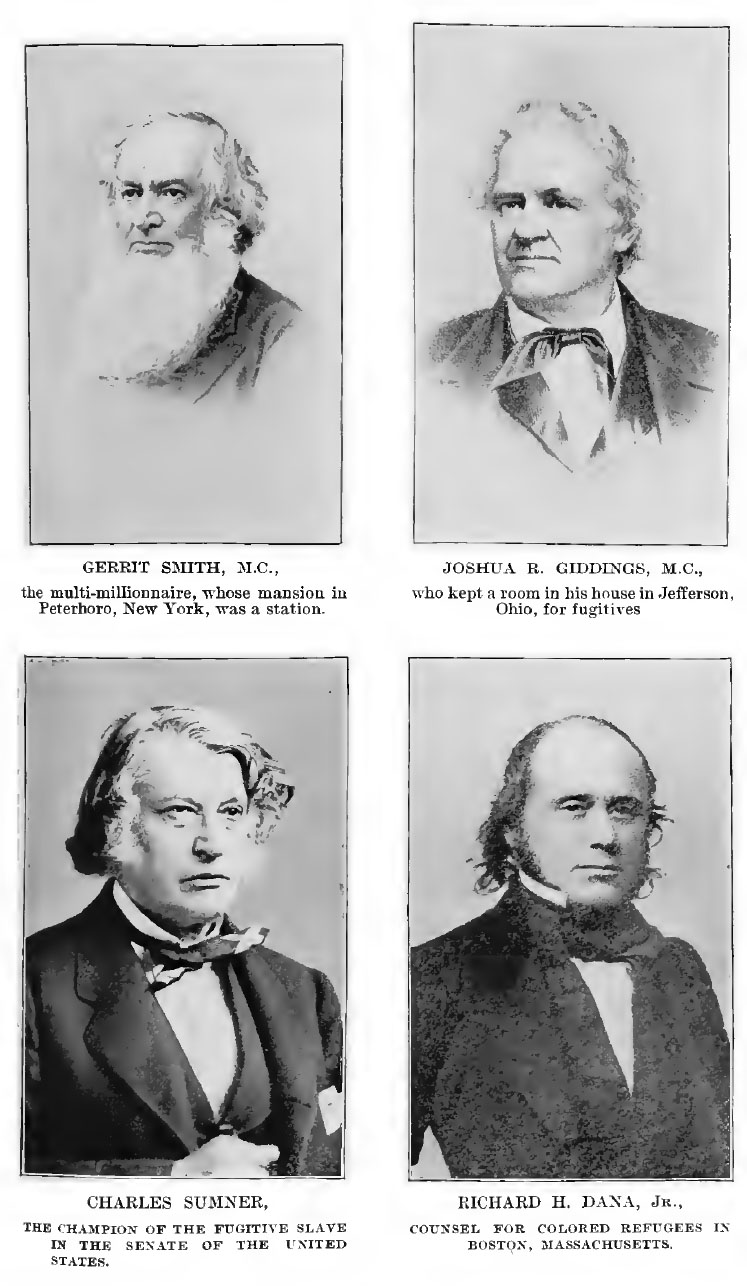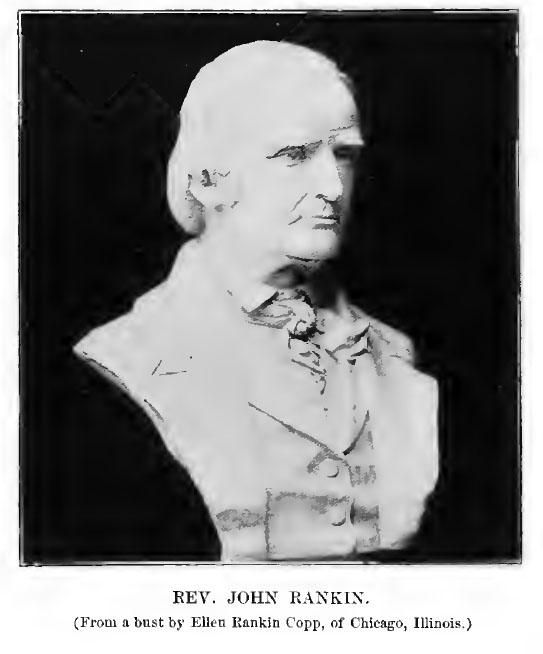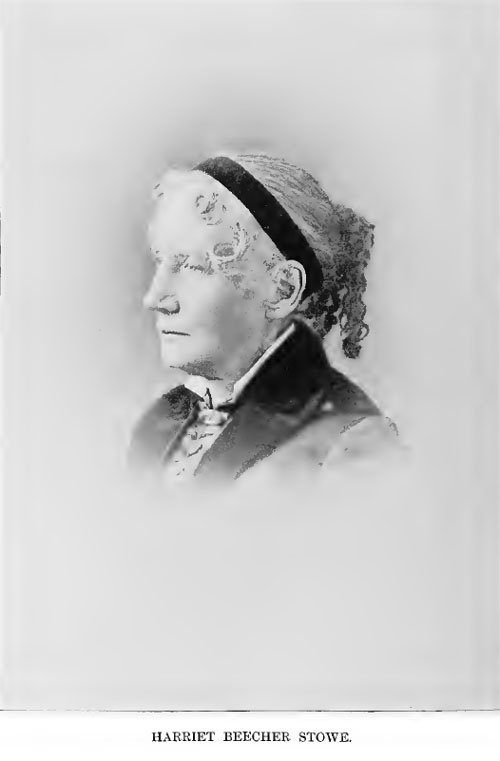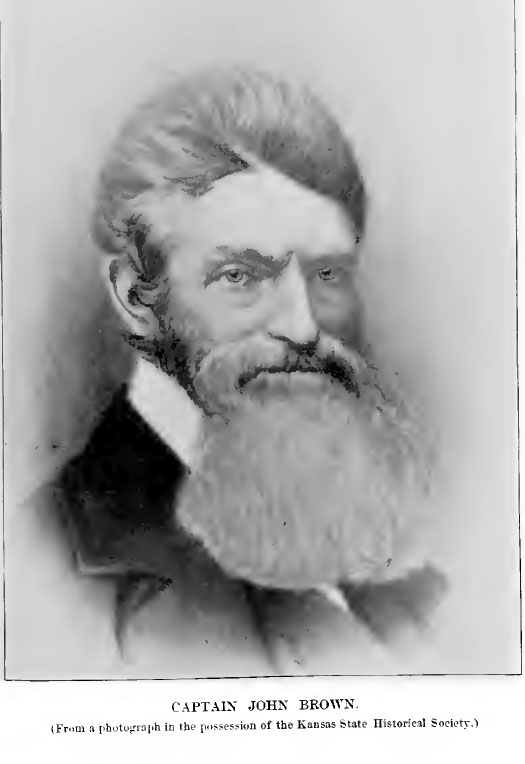|
CHAPTER X
THE UNDERGROUND RAILROAD IN POLITICS
Pg. 290
To set forth
the political aspect of the Underground Railroad is not
easy. Yet this side must be understood if the
Underground Railroad is to appear in its true character
as something more than a mere manifestation of the moral
sentiment existing in the North and in some localities
of the South. The romantic episodes in the
fugitive slave controversy have been frequently
described; but it has altogether escaped the eye of the
general historian that the underground movement was one
that grew from small beginnings into a great system;
that it must be reckoned with as a distinct causal
factor in tracing the growth of anti-slavery opinion;
that it furnished object lessons in the horrors of
slavery without cessation during two generations to
communities in many parts of the free states; that it
was largely serviceable in developing, if not in
originating, the convictions of such powerful agents in
the cause as Harriet Beecher Stowe and
John Brown; that it alone serves to explain
the enactment of that most remarkable piece of
legislation, the Fugitive Slave Law of 1850; and,
finally, that it furnished the ground for the charge
brought again and again by the South against the North
of injury wrought by the failure to execute the law, a
charge that must be placed among the chief grievances of
the slave states at the beginning of the Civil War.
Even in colonial times there was difficulty in
recovering fugitive slaves, because of the aid rendered
them by friends, as is apparent from an examination of
some of the regulations that the colonies began to pass
soon after the introduction of slavery in 1619.
The Director and Council of New Netherlands enacted an
ordinance as early as 1640,

GERRIT SMITH, M. C.
JOSHUA R. GIDDINGS, M. C.
CHARLES SUMNER
RICHARD H. DANA, JR.
[Pg. 291] - EXTRADITION IN COLONIAL
TIMES -
[Pg. 292]
[Pg. 293] - QUESTION OF EXTRADITION IN 1787 -
[Pg. 294]
[Pg. 295] - AGITATION FOR A NEW
SLAVE LAW -
[Pg. 296]
[Pg. 297] - AGITATION FOR A NEW
SLAVE LAW -
[Pg. 298]
[Pg. 299] - NEGOTIATIONS WITH
CANADA -
[Pg. 300]
[Pg. 301] - EFFECT OF THE FUGITIVE
SLAVE'S APPEAL -
[Pg. 302]
[Pg. 303] - PREPARATION FOR
GARRISONIAN MOVEMENT -
[Pg. 304]
[Pg. 305] - EARLY ADVOCATES OF IMMEDIATISM -
[Pg. 306]

REV. JOHN RANKIN.
[Pg. 307] - CONTINUITY
OF ANTI-SLAVERY MOVEMENT -
[Pg. 308]
[Pg. 309] - AND THE
FUGITIVE SLAVE LAW OF 1850 -
[Pg. 310]
[Pg. 311] - SLAVE LAW
OF 1850 IN CONGRESS -
[Pg. 312]
[Pg. 313] - SLAVE LAW
OF 1850 IN CONGRESS -
[Pg. 314]
[Pg. 315] - SLAVE LAW
OF 1850 IN CONGRESS -
[Pg. 316]
[Pg. 317] -
ENFORCEMENT OF THE LAW OF 1850 -
[Pg. 318] -
[Pg. 319] - OPEN
RESISTANCE TO THE LAW OF 1850 -
[Pg. 320] -

HARRIET BEECHER STOWE
[Pg. 321] - UNCLE
TOM'S CABIN
[Pg. 322]
[Pg. 323] - POLITICAL
IMPORTANCE OF THE NOVEL -
[Pg. 324]
[Pg. 325] - SUMNER ON
THE APPEAL OF FUGITIVES -
[Pg. 326]
[Pg. 327] - SPIRIT OF
NULLIFICATION IN THE NORTH -
[Pg. 328]
[Pg. 329] -GLOVER
RESCUE IN WISCONSIN -
[Pg. 330]
[Pg. 331] - RENDITION
OF BURNS IN BOSTON -
[Pg. 332]
[Pg. 333] - HOSTILITY
TO THE SLAVE LAW IN ILLINOIS -
[Pg. 334]
[Pg. 335] - FUGITIVE
SLAVE LAW DEFEATED IN OHIO -
[Pg. 336]
[Pg. 337] - PERSONAL
LIBERTY LAWS -
[Pg. 338]
first, it created a
reaction against slavery and brought many recruits into
underground work to aid the rapidly increasing number of
escaping slaves; second, in connection with the repeal
of the Missouri Compromise, it led public sentiment in
many states to provide additional safeguards in the form
of personal liberty bills for the protection of
fugitives and their helpers.1 These
bills ran counter in spirit if not always in letter to
legislation that was held by the United States Supreme
Court to be in keeping with the constitutional clause
providing for the recovery of fugitive slaves. In
principle they were, therefore, like the nullification
ordinance of 1832.2
While the system of the Underground Railroad was thus
expanding and pressing everywhere against legislative
restraints, there arose a man who sought to solve the
whole slavery problem in his own rash way. When
John Brown led a company of slaves from
Missouri to Canada despite the attempts to prevent him;
and when soon thereafter he attempted to execute his
plan for the general liberation of slaves, he showed the
extreme to which the aid to fugitives might lead.
The influence of Brown's training in Underground
Railroad work is plain in the methods and plans he
followed, which have given him a place in American
history. Early convinced that action was the thing
needed to help the bondman, he set himself to find a way
of effecting the destruction of slavery. In
devising his scheme he seems to have considered an
underground channel of escape as a necessary feature of
it for those lacking the courage to join a move-
---------------
1 Joel
Parker, Personal Liberty Laws and Slavery in the
Territories, 1861, pp. 10, 11.
2 J. B. Robinson, Pictures of Slavery and
Anti-Slavery, 1863, pp. 332, 333; M. G. McDougall,
Fugitive Slaves, p. 70; Rhodes, History of the
United States, Vol. II, p. 74. Mr. Rhodes says
of the personal liberty bills: "They were
dangerously near the nullification of a United States
law, and had not the provocation seemed great, would not
have been adopted by people who had drunk in with
approval Webster's idea of nationality . . . . While
they were undeniably conceived in a spirit of bad faith
towards the South, they were a retaliation for the
grossly bad faith involved in the repeal of the Missouri
Compromise. Nullification cannot be defended, but
in a balancing of the wrongs of the South and the North,
it must be averred that in this case the provocation was
vastly greater than the retaliation."

CAPTAIN JOHN BROWN
[Pg. 339] - BROWN'S
ATTEMPT TO FREE THE SLAVES -
ment sure to involve them
in armed conflict with their masters. This feature
was designated the "Subterranean Pass Way." The
varying character of the testimony in regard to this
feature, as well as the natural change of view that took
place in Brown's mind with the passage of the
years, does not permit one to say definitely what
importance was attached by the liberator to the Pass Way
as a part of his plan, but its utility in reducing the
value of slaves must have been apparent to him.
That the whole movement he contemplated would have the
effect of making slave property unstable he showed when
speaking of the initiative of the movement in Virginia.
Brown said: "If the slaves could in this way be
driven out of the county, the whole system would be
weakened in the State."1 In this matter the
judgment of the liberator was not at fault, for it has
been estimated that his attack on Harper's Ferry caused
the value of slave property in Virginia to decline to
the extent of $10,000,000.2 That
Brown had the sympathy of a large number of persons
in the North, including some public men, was a
circumstance calculated to make a deeper impression on
the minds of the Southern men generally than this
decline in the price of Virginia slaves.
---------------
1 Hinton,
John Brown and His men, pp. 31, 32.
2 Ibid., p. 30.
RETURN TO TABLE OF CONTENTS |